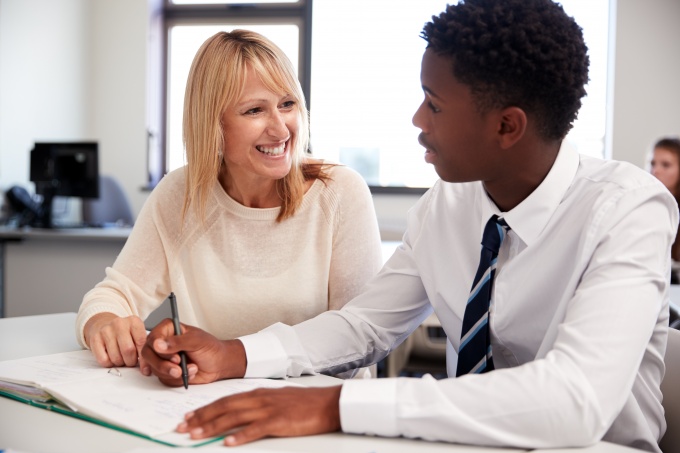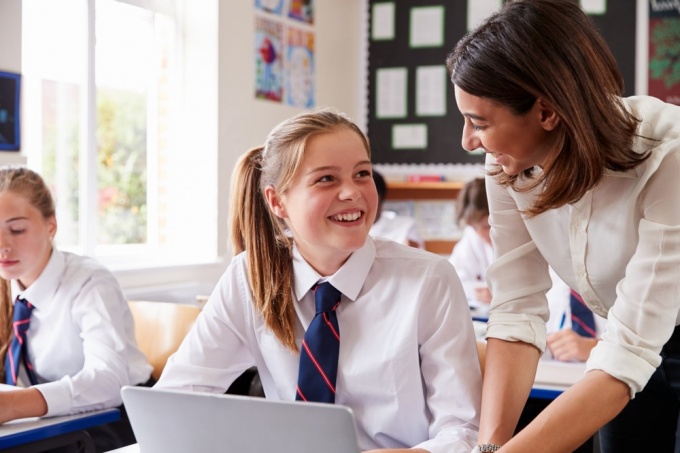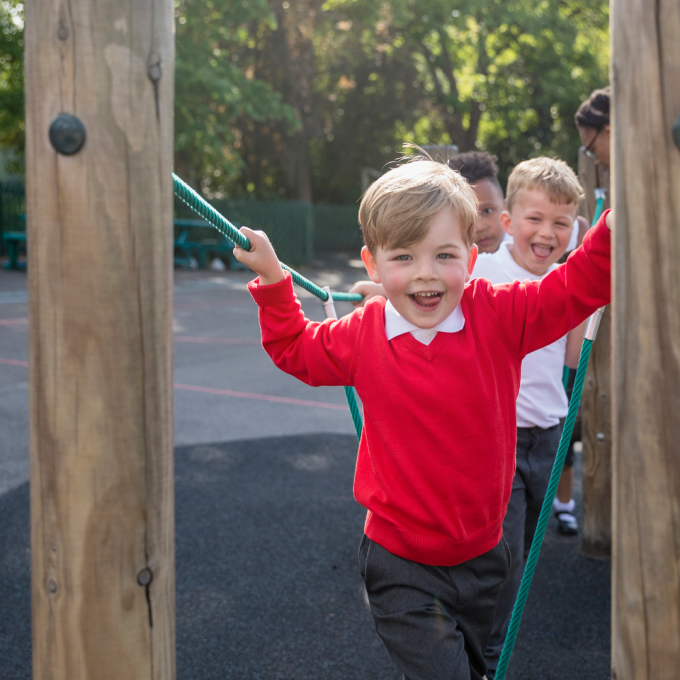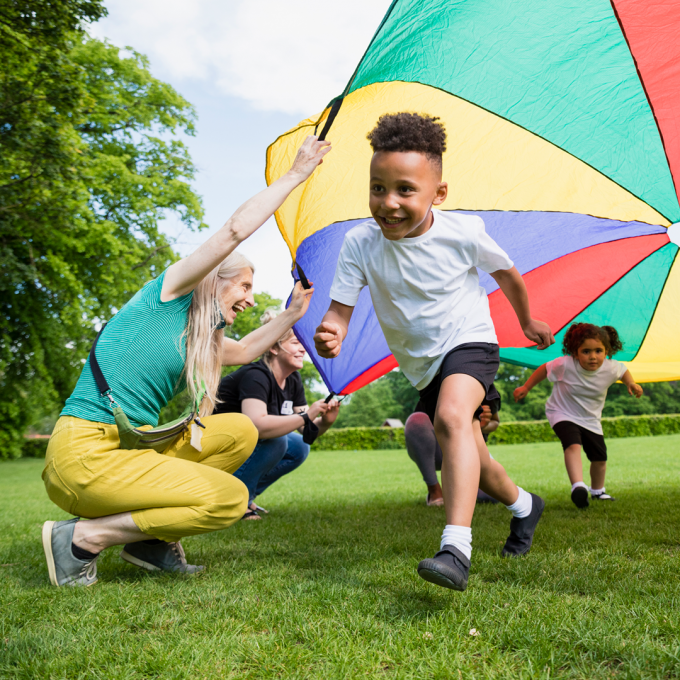Back in July, we invited you to share your tips for supporting children and young people to quickly settle in or reconnect with staff and peers after a break.
From reassuring pupils and helping them to feel at ease, to using playfulness and setting routines – your tried-and-tested techniques will be creating welcoming environments as schools and settings reopen their doors. Thank you for generously sharing them with us.
Click to download our Community Tips flyer below, or keep scrolling to read all of the tips shared with us.


Notice them
“Notice the haircuts and the new shoes. Remind children of the routines. Classes may have changed but the care has not.” Clare Cousins, Primary School
Gain their trust
“Help young people to feel important. Gain their trust.” Sonya McIntyre. Teaching Assistant, The John of Gaunt School
Reassure
“Have conversations about their previous class and teacher. Reassure them that they're going to have a great year in their new class.” Colin Harrison. SEN Support Assistant, St. Paul's Church of England Primary School
Involve everyone
“Play any kind of game that involves everyone.” John Quinn, Thrive Trainer
Reconnect
“Draw, talk and share. Reconnect.” Claire Jayne Lloyd. Lead Thrive Practitioner/Learning Mentor, Burrsville Infant Academy
Buddying
“Have a young interpreter scheme to help support pupils that have limited English. Buddying and near peer teaching schemes can help children settle back in.” Sian Dacey. ALNCo, Kitchener Primary School
Acknowledge feelings
“Recognise and acknowledge feelings in the moment.” Jane Howes. Pastoral Manager/DSL, Valley Primary Academy
Thrive room
“If anxiety calls for it, bring pupils straight to the Thrive room in the morning before class.” Bev Furber. Thrive Licensed Practitioner, The Ridge Junior School
Use playfulness
“Use playfulness, acceptance, curiosity and empathy. Be relational.” Diane Molineux. Thrive Licensed Practitioner, Raise Education & Wellbeing School
Help pupils feel at ease
“Help pupils feel at ease by saying something funny or making a positive comment about them.” Beata Perkins. HLTA, Barton Hill Academy
Listen
“Say hello. Ask them how they are. Listen to their responses to show they are important to you.” Dawn Bearby. Teaching Assistant, High Tunstall College of Science
Allow more time
“Allow more time for movement and brain breaks until they get used to the new routine.” Gillian Grosset. Pastoral Support, Fieldhead Carr Primary School
Check in regularly
“Play whole class games that bring joy. Check in regularly with those pupils missing home.” Cath Deacon. Teaching Assistant/Thrive Practitioner, Ladygrove Park Primary School
Team building activities
“Team building activities. Anything that gets everyone talking and communicating.” Sue Billingsley. Class Teacher, Outwoods Primary School
Validate their feelings
“Be playful and available. Validate their feelings. Arrange to meet children you know will struggle and walk them into class.” Alison Williams. Thrive and mental health and well-being practitioner, Pitmaston Primary School
Demonstrate a culture of support
“Leadership need to communicate, promote and demonstrate a culture of support. This should be a priority message during any inset. Create a whole school worry box that is checked throughout the day.” Mark Watson. Assistant Head Teacher, Cotmanhay Junior School
Let pupils know the support available
“Let pupils know the support available in school, for example Mental Health First Aiders and Resilience and Wellbeing Mentors.” Kaz Alpnar. Deputy Lead DSL, Saint Georges Church of England All-Through School
Give pupils photographs
“Give pupils photographs before the holidays so new staff feel familiar to them.” Sue Minter. SENDCo, Fletching Church of England Primary School
Create a sense of calm
“Create a sense of calm. Be super prepared and organised.” Rachel Cottell. Teacher, Churchdown Village Junior School
Allow time to reset
“Allow time to reset at the beginning of each new term or half term.” Rebecca Hardy. AHT Sen, Wellfield School
Meet and greet
“Meet and greet on the door. Have a staggered start for new parents. Make contact with vulnerable pupils or families before they start back.” Charlotte Bowyer, Assistant Headteacher, King Ecgbert School
Share news
“Share news about ‘my best day ever’.” Fiona Langford-Jackson. SENCO, St Joseph's RC Primary School
Hold events during the holidays
“Hold events during the holidays to stay connected as a school community.” Nicki Foster. Proprietor and Principal, Egham Park School
Be available
“Make contact prior to coming back to school with a phone call, email or postcard. Ask what would help them. Be available and let them know you are.” Sammi Morgans. SEND Teaching Assistant & Thrive Practitioner, Shotley Community Primary School
Connect
“Answer the register in a 'connecting' way for the whole class: If you were an item on my desk, what would you be? A calculator full of sums. A pencil - sharp and ready to write. A ball - wanting to move and bounce.” Debbie Trotman. DSL and Learning Mentor, Bridge Farm Primary School
Have familiar objects
“Have familiar transitions toys and objects at hand. We use the book The Invisible String to remind children that their carers are keeping them in mind.” Lisa Bowen. , School Learning Mentor, St Andrew’s Church School
Smile
“Smile! Tell pupils how pleased you are to see them and how special they all are.” Jenny Turner. Thrive Trainer
Create a photo album before the break
"Create a photo album before the break including who, what and where they'll be returning to and who their key adults will be.” Dominique Sagar. Director of Learning, Delta Academy Trust
Context Dependant Memory
“Context Dependent Memory (CDM) is a big focus for us. We sing songs that children know from assemblies, we serve a familiar favourite (fish and chips!) on the first day back.” Amy Husband. Executive Headteacher, Inspire Education Trust
Learn a fact
“Learn one (non-academic) fact about each child.” Laura Nicholson. Trainer, Thrive
Play games
“Play games like Uno. ‘Guess the Flavour of the Crisp’ Challenge is a great activity for connection and having fun together.” Ali Martin. Freelance trainer and support
Talk about a shared experience
“Greet them by talking about a shared experience. Or mention something over the holidays that made you think of them.” Lee Prichard. Head of Partnerships, Thrive
Be curious
“Be curious about the summer break. Be present and available: at the door, in the playground, over lunch, at the end of the day.” Jo Warner. Assistant Director of Education, Diocese of Durham and Newcastle
Prepare them beforehand
“We prepare them beforehand by providing a transition book and send videos over the holidays.” Bernie Wright. Pastoral Care Worker, St Mary's Catholic Primary School
Set expectations
“Set expectations quickly and with a smile. Allow time to talk, play light-hearted games and then set a routine.” Karen Follows. Acting Head Teacher, Long Mead Community Primary School
New to Thrive?
New to Thrive? Our Pupil Wellbeing course is the perfect opportunity to get to grips with our fundamental principles. The training is designed to help you build children and young people’s emotional resilience so they can effectively manage stress and take on life’s ups and downs. The training also leads to Thrive-accredited Pupil Wellbeing Specialist status and can be converted to Thrive Licensed Practitioner status with additional modules at a later stage.
If you’d like to learn more about becoming a Thrive Licensed Practitioner, our online profiling and action plan tool Thrive-Online or embedding Thrive across your MAT, local authority or individual setting, click here to schedule a Discovery Call with your regional expert.


_680.jpg)

_680.jpg)

